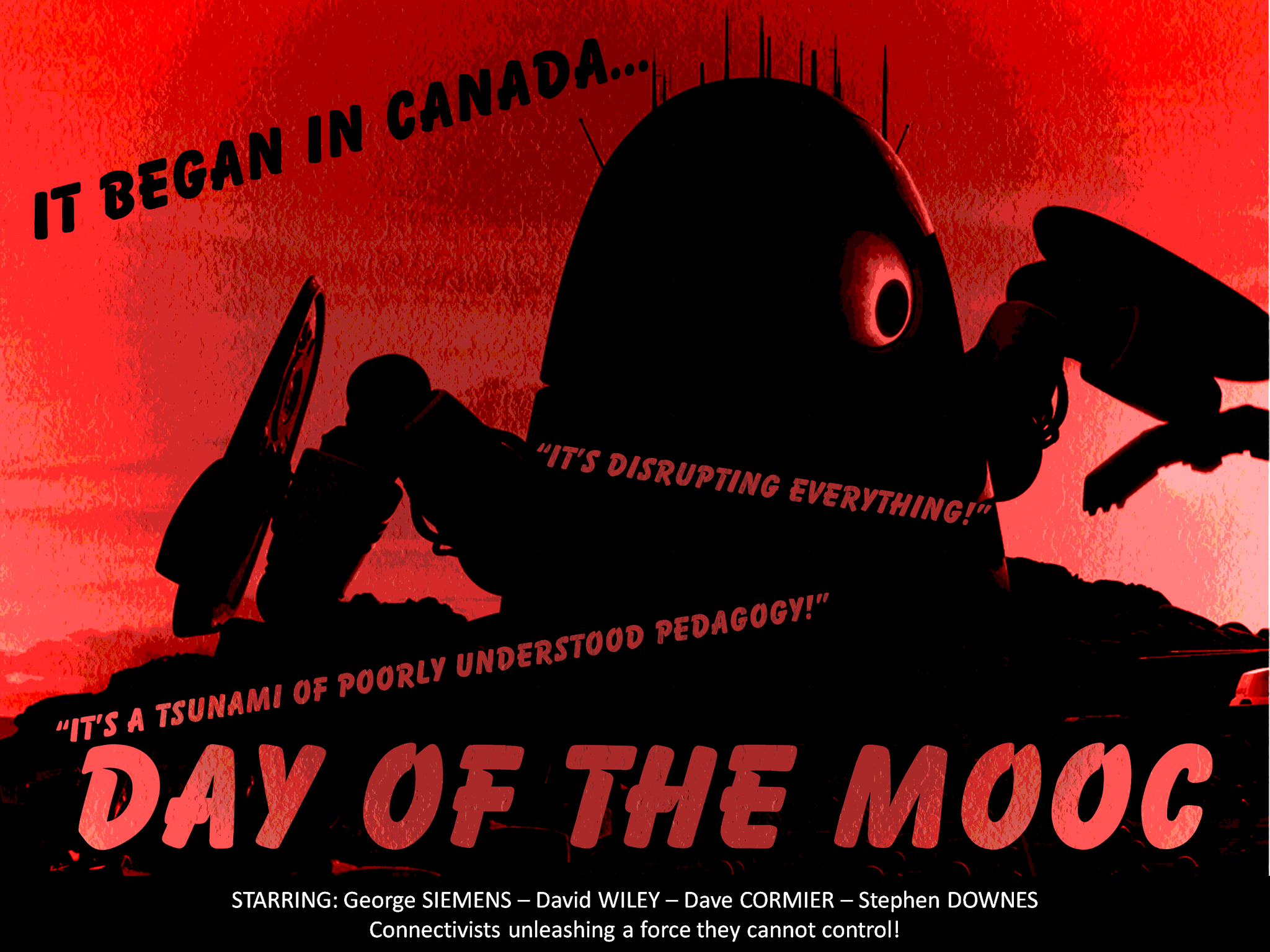Massive Online Open Courses (MOOCs) and their B-movie monster-like threat to traditional education are all over the blog world again this week.

I’m personally very excited by the tsunami of free online content. I just finished the excellent Model Thinking from the University of Michigan on Coursera on models for better decision-making. The platform felt flexible but was deceptively fast-paced so while the platform was new the study guilt was old-sch0ol.
I could certainly have used it for logic programming or natural language processing in my undergraduate computer science years.
But for the business courses I’ve done since? Not so much. For the real-world practicalities of business strategy, innovation and finance the other participants in the room were as much a part of the learning as the subject matter being discussed and the expertise of the facilitator who drew on the experiences to feed back into the learning.
So “what”, cry the bloggers, “will happen to our centres of learning when the universities up sticks and move online”? The answer is that the good ones won’t. At least not entirely.
The need for live and dynamic face-to-face learning experiences (as recognised even by those heavily involved in online) means we will see an unbundling of the educational offering. What can go online, will. What is left as face-to-face will need to be excellently designed to draw participants.
Coursera and its fellow MOOCs look set to become a highly valuable extension of the university – driving down operating costs and extending reach through advertising and pre-enrolment. We’re likely to see dynamic pricing follow – as distance, previously gained credit and perhaps even the level of support given to other participants could all potentially combine to determine the price paid.
Learners won’t perceive the introduction of the technology as a shift – for them, the internet hasn’t invented a new type of learning any more than it invented bartering or bullying. The integration has already begun – even allowing for the predictably high dropout rates, hundreds of thousands of people are already using online as a ‘go-to’ educational support.
The shift will be felt by teachers – who will be increasingly required to to design courses that participants are willing to pay for when content alone is freely available elsewhere. If the future value proposition is in programme design then the scalability and big data offered by these platforms could be the saviour of the educational business model.
So in Model Thinking terms – it’s not so much a tipping point… more like a standing ovation model… I think?..Crushingly I got 74.5% – missing a certificate by half a percent. I’m not sure any of my undergrad professors would have been so heartless.
Have you signed up for a MOOC? Share your thoughts and experiences in the comment area.
Eva Maguire is Strategic Projects Manager at IMI, currently leading IMI’s research project into management practices and productivity which seeks to globally benchmark the management of indigenous and multinational organisations operating in Ireland.


